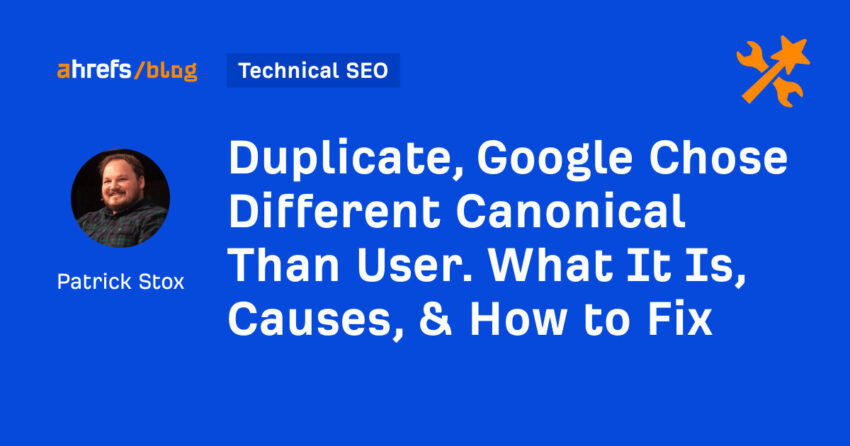The Google Search Console standing “Duplicate, Google selected completely different canonical than person” implies that Google selected a distinct URL to index than the one the person chosen. This will occur when Google finds two or extra items of content material on a web site which are very comparable or equivalent.
The problem will present within the Web page Indexing report in Google Search Console. That is the way it seems.
After I test on certainly one of our pages with this subject, I see that the content material hasn’t been translated but for both language. It’s nonetheless in English, so I think that we now have extra of those pages that also have the difficulty. There’s a little bit of a delay in our translation course of that causes this subject.
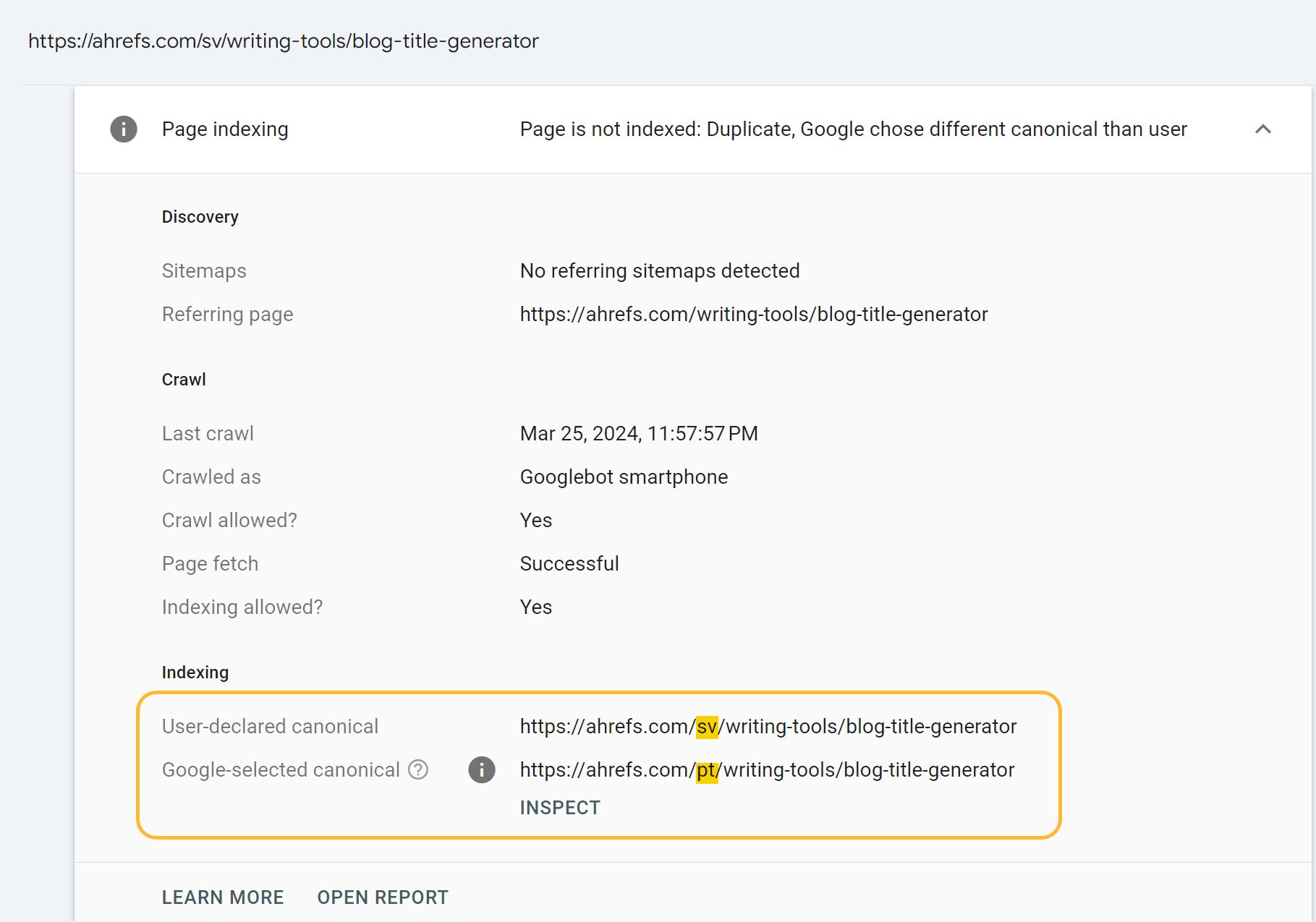
Let’s have a look at what causes the difficulty and how one can repair it.
What causes “duplicate, Google selected completely different canonical than person”
There are some things which may trigger a web page to be flagged with this subject.
Duplicate or comparable content material
In accordance with Google’s Gary Illyes, 60% of the net is duplicate content.
Google doesn’t need to retailer each model of each web page. They retailer one primary model of the web page after which create information of the alternates.
The canonical hyperlink factor, or canonical tag, is certainly one of ~20 canonicalization signals that Google makes use of. It’s a touch, and so different indicators can inform Google that it’s a distinct web page that ought to really be the listed model of the web page proven to customers.
All the indicators will consolidate to the listed model of the web page, and plenty of of those different pages might be flagged as duplicates. If their specified canonical URL doesn’t match, then you definately’ll see them with the difficulty “duplicate, Google selected a distinct canonical than person.” This isn’t normally a problem and normally gained’t influence rankings, but it surely is probably not the web page you like to be proven.
There could also be a number of URLs for a similar content material, which ends up in duplicate content material points. This can be brought on by capitalization, trailing slashes, IDs, URL parameters, and many others. So all of those could exist:
area.com/Abc
area.com/abc
area.com/123
area.com/?id=123One other time you may even see this subject is if in case you have an ecommerce retailer that has many product variants with out having a lot distinctive content material. The product variants could have self-referencing canonical tags, however Google could solely index one of many variations of the web page.
For those who solely need one model listed, you must set a self-referencing canonical and both canonical tags from different variations that reference the principle model or redirect the opposite variations to the principle model.
Test the Duplicates report in Site Audit. We break down which duplicate clusters have canonical tags set and which have points.
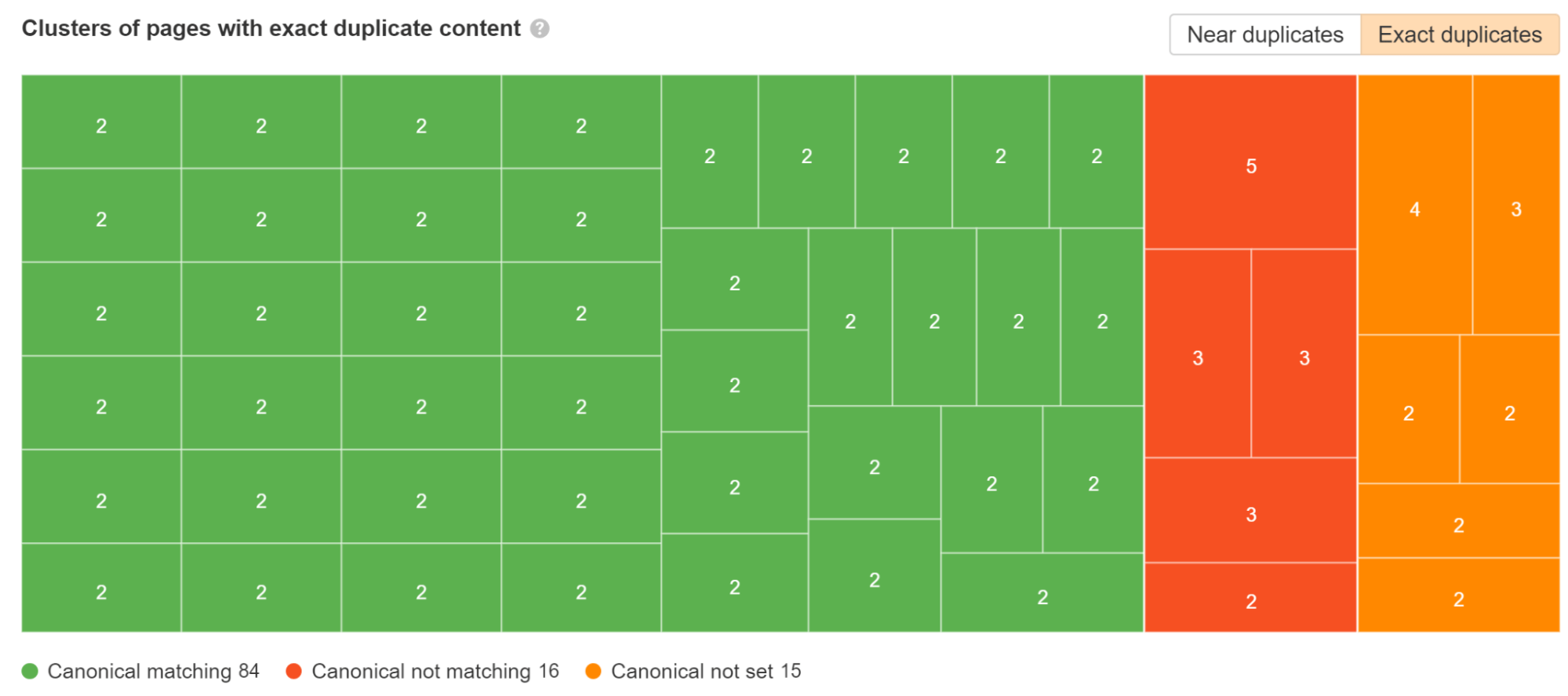

This subject may additionally present for worldwide web sites. Generally firms use the identical content material or comparable content material for a number of international locations that use the identical language. For instance, firms could use the identical or comparable content material on pages concentrating on the US, UK, and AU. Google will normally index certainly one of these, however because of the magic of hreflang tags, they will nonetheless swap and present the alternate variations in search outcomes.
These alternate variations normally present as “duplicate, Google selected a distinct canonical than person” in GSC. Google will even report site visitors simply to the canonical model in GSC, even when they’re swapping and displaying customers the proper variations.
Hreflang tags work in pairs to kind a cluster. Now we have a cluster visualization software in Web site Audit that reveals and tells you what’s damaged, making it a lot simpler to know and clarify than the everyday spreadsheet.
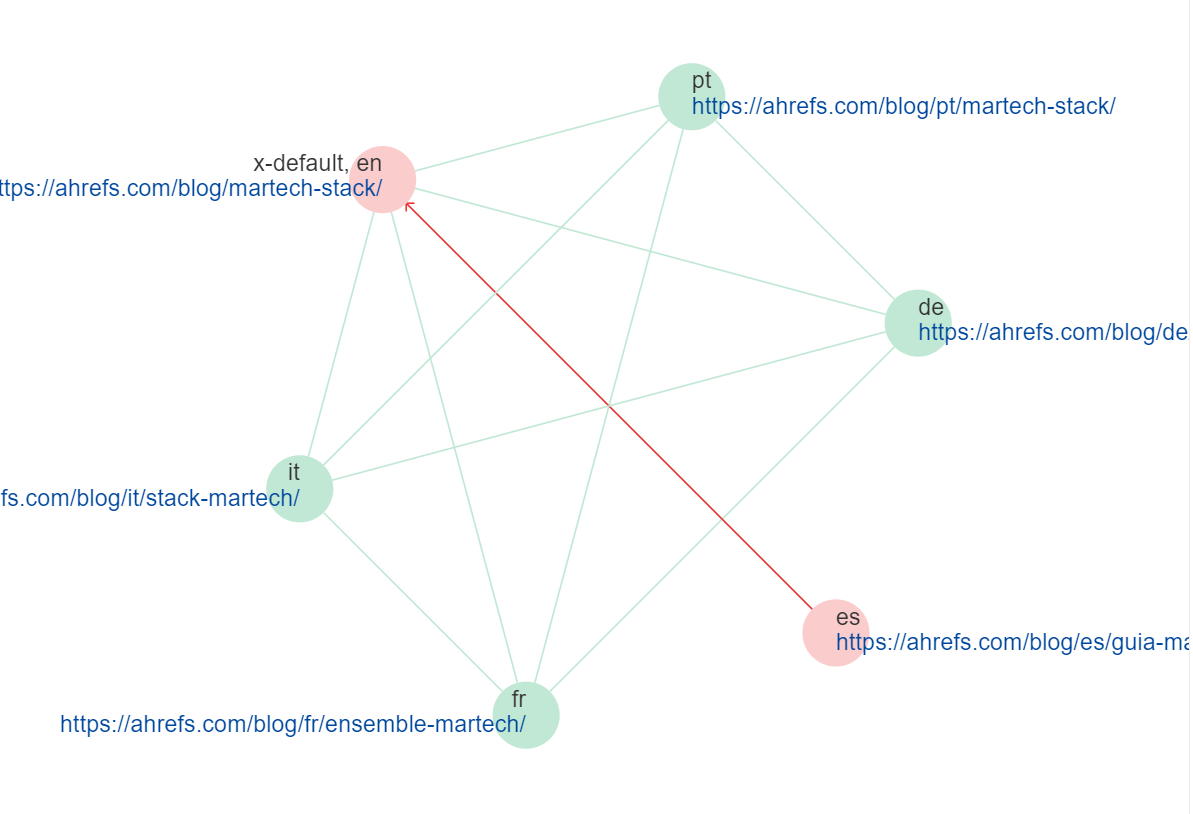

And generally Google simply will get it incorrect. With syndicated content, Google can sometimes select the copied content material because the canonical URL as a substitute of the unique.
Canonical tag errors
Just like what occurs with redirects, canonical tags may have chains or loops. The additional pages could also be categorized as “duplicate, Google selected a distinct canonical than person.”
A canonical chain is a collection of URLs whose canonical tags level to the subsequent URL within the chain.
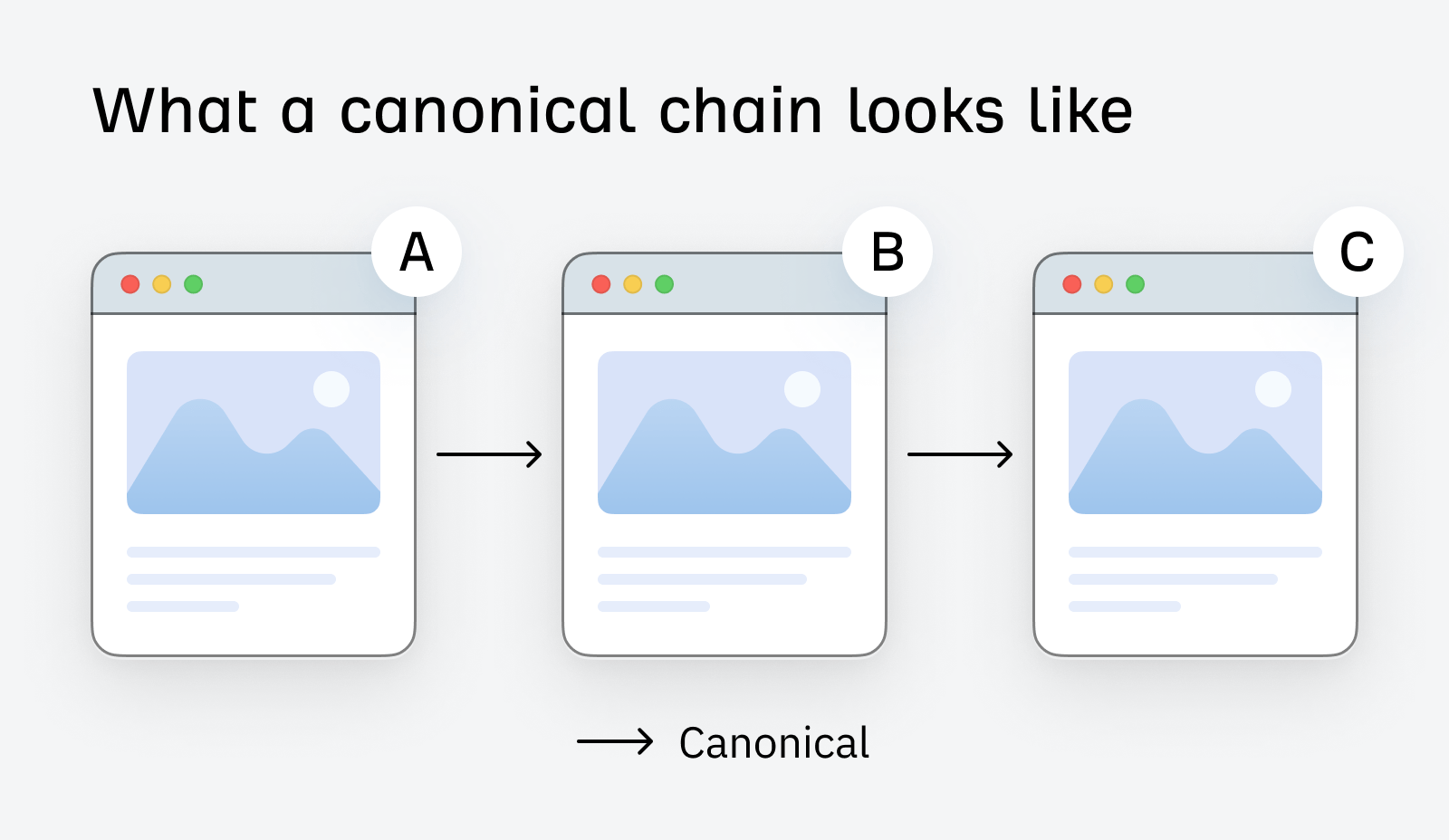

You additionally could run into canonical loops, the place one of many chains factors again to a web page that was earlier within the sequence. This kinds an infinite loop.
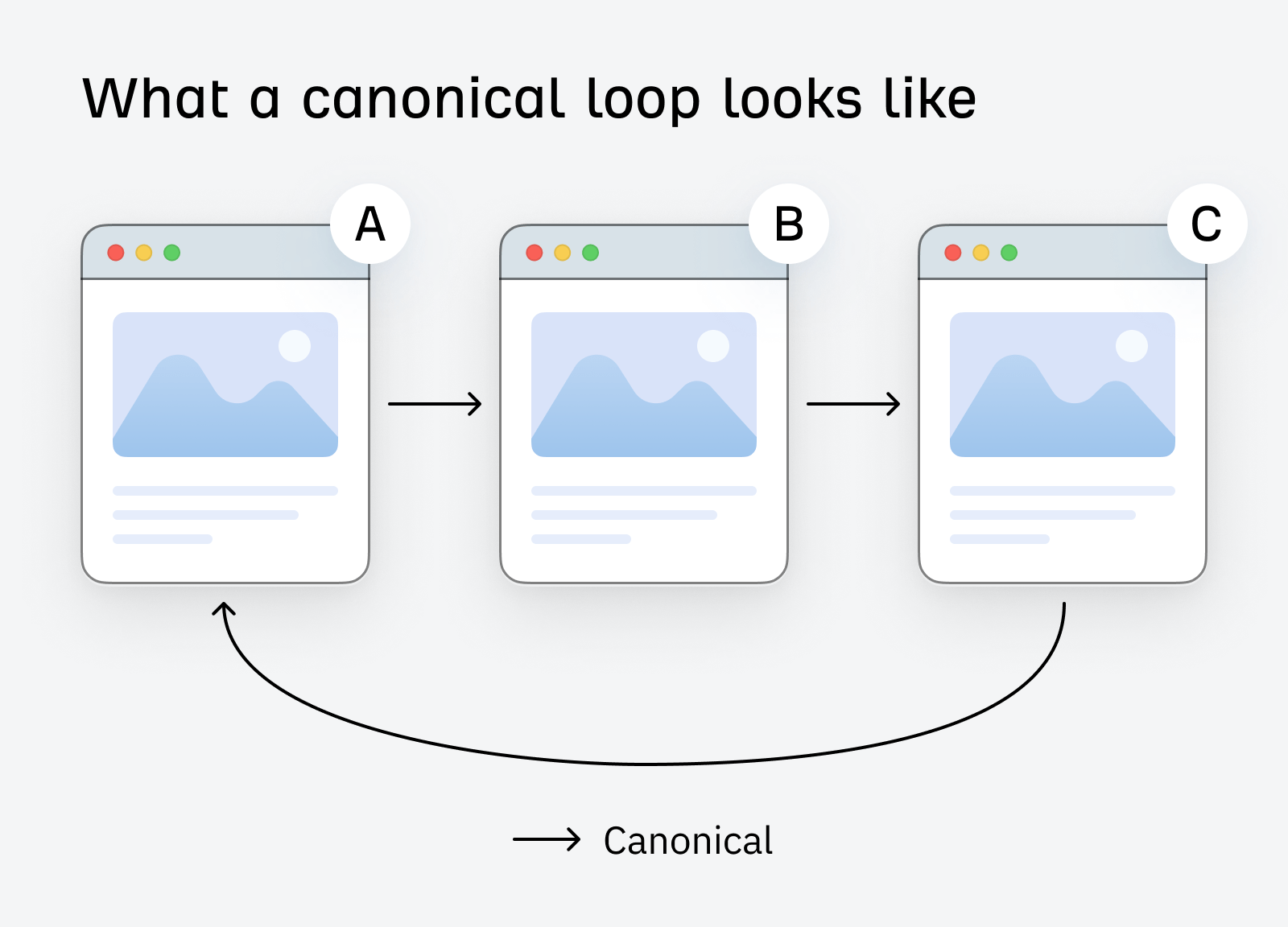

You possibly can test for these points in Web site Audit. We present them below the difficulty “Non-canonical web page specified because the canonical one,” which appeared on 1.36% of internet sites in our study of 1 million domains.


You may additionally see this subject in case you unintentionally made a mistake in your canonical tag, comparable to together with an additional character. Pages should still resolve, however Google could select your authentic URL because the canonical URL.
Rendering points
With JavaScript web sites, notably app shell fashions, the preliminary HTML response could present little or no content material and code. In actual fact, each web page on the location could show the identical code, which can be the very same because the code on another web sites.
For those who see a excessive variety of duplicate pages in the identical cluster in Web site Audit, you’ll have this subject.
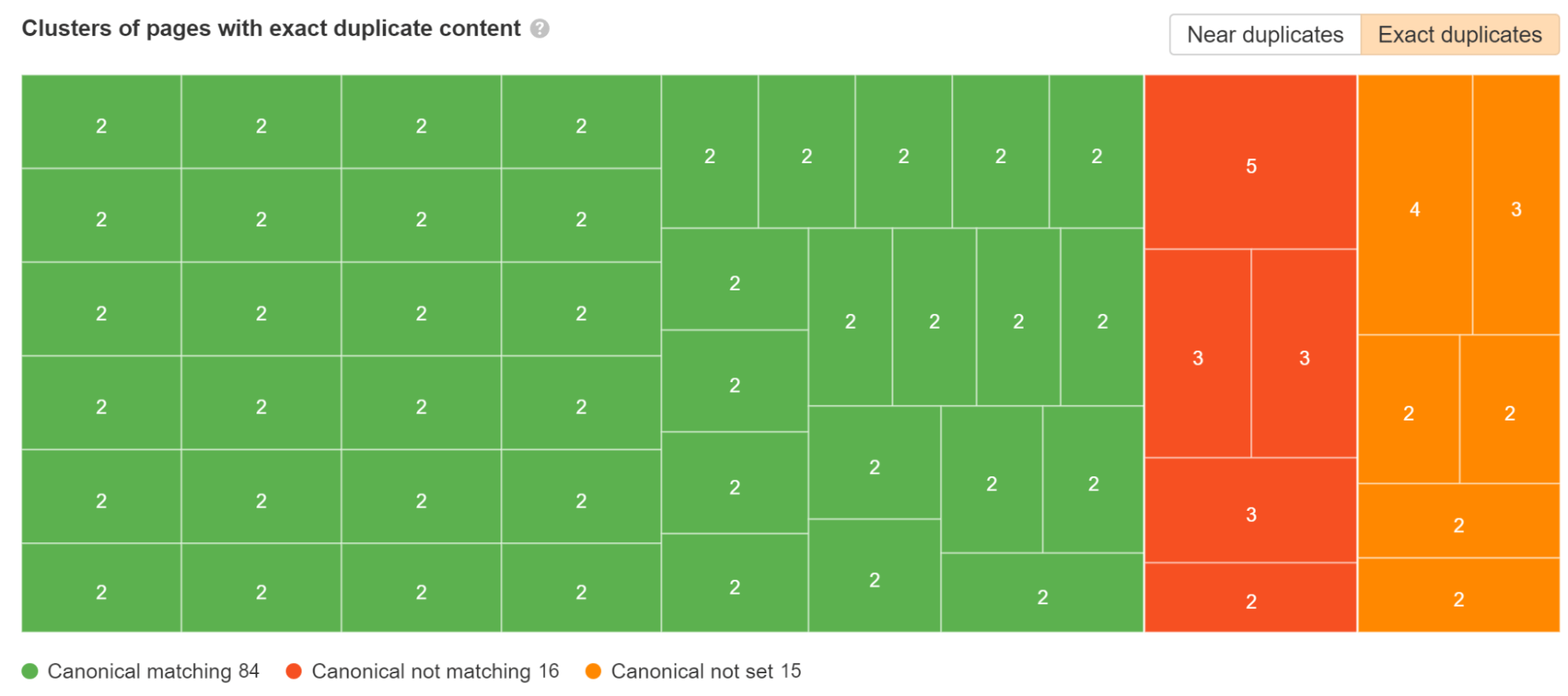

This will generally trigger pages to be handled as duplicates and never instantly go to rendering. Even worse, the incorrect web page and even the incorrect web site could present in search outcomes. This could resolve itself over time however could be problematic, particularly with newer web sites.
Find out how to repair “duplicate, Google selected completely different canonical than person”
The way you repair the difficulty will rely upon which subject applies to your web page.
In case your content material is duplicate, make it extra distinctive
You probably have content material that’s the identical or duplicate and also you need every of the pages listed, you’ll must put in some work to make them extra distinctive. That is widespread on web sites with a whole lot of boilerplate content material with little or no distinctive content material for his or her pages.
A lot of the pages I see as a problem for our web site come from a delay in our translation course of. We generally publish pages for different languages earlier than they’re translated or totally translated, which leads them to be flagged as duplicates. As we translate the pages, the problems are cleared out. Translated pages aren’t thought of duplicates.
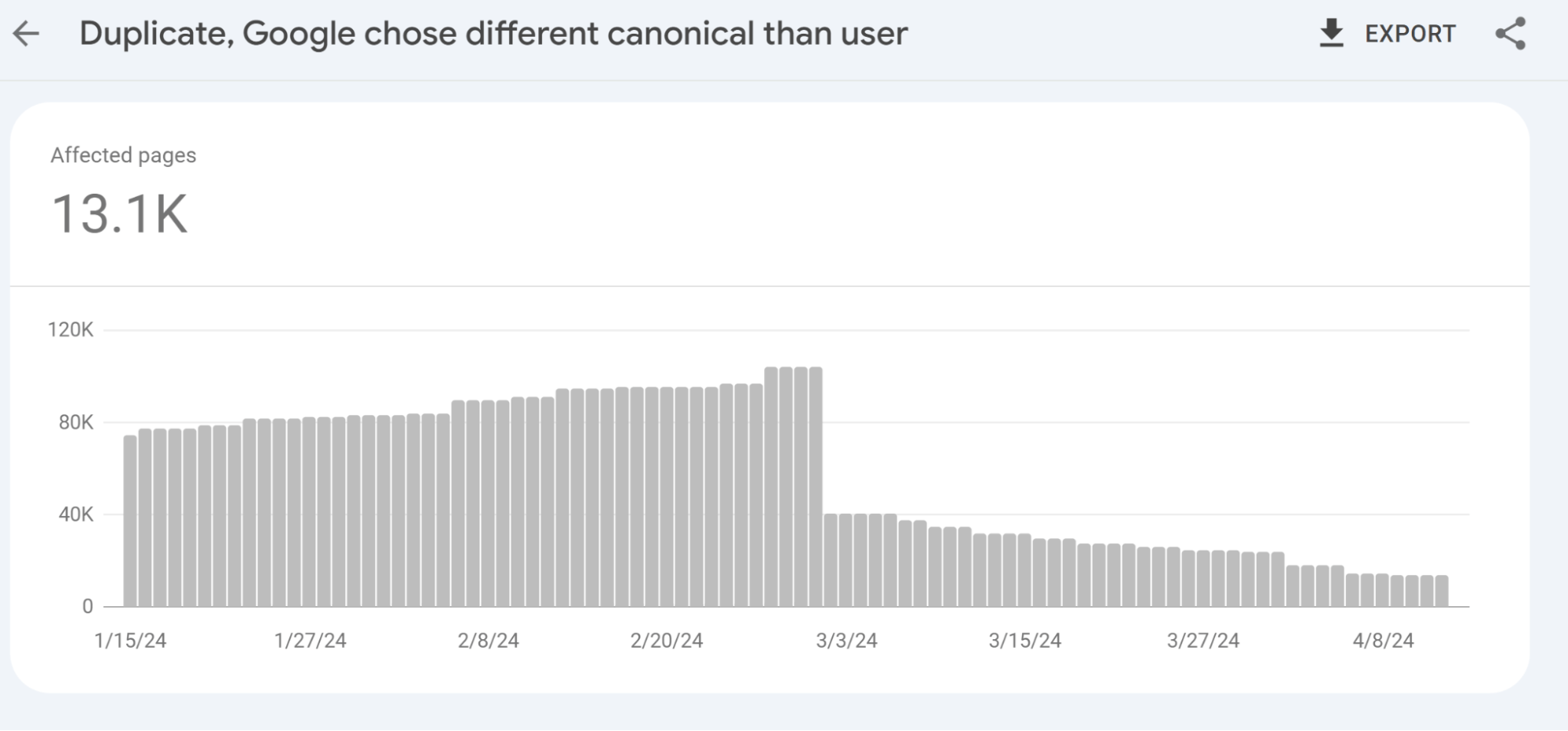

You probably have canonicalization points, repair them
For any canonical chains or loops, select your most well-liked model of the web page and ensure that it, in addition to all different variations of the web page, references your most well-liked model.
Chances are you’ll even need to use stronger canonicalization indicators to consolidate the pages, comparable to a 301 or 308 redirect.
For those who made any errors along with your canonical tag (e.g., together with an additional character) and Google has ignored it, you possibly can repair the difficulty by fixing the canonical tag to level to the principle model of the web page.
You probably have rendering points, use a pre-render or SSR
In case your downside is coming from the returned HTML in your web site all trying the identical, you might have considered trying a pre-rendering or server-side rendering (SSR) resolution. This may render the content material of the web page earlier than customers or bots obtain it. That content material on most websites would come with some distinctive content material and will clear up this subject. Discuss to your devs if it’s good to set this up.
Closing ideas
“Duplicate, Google selected completely different canonical than person” normally occurs with duplicate pages, however not at all times. Normally, Google is making an attempt to maintain its index clear and never have a bunch of duplicates, or Google is making an attempt to repair a mistake on the web site.

